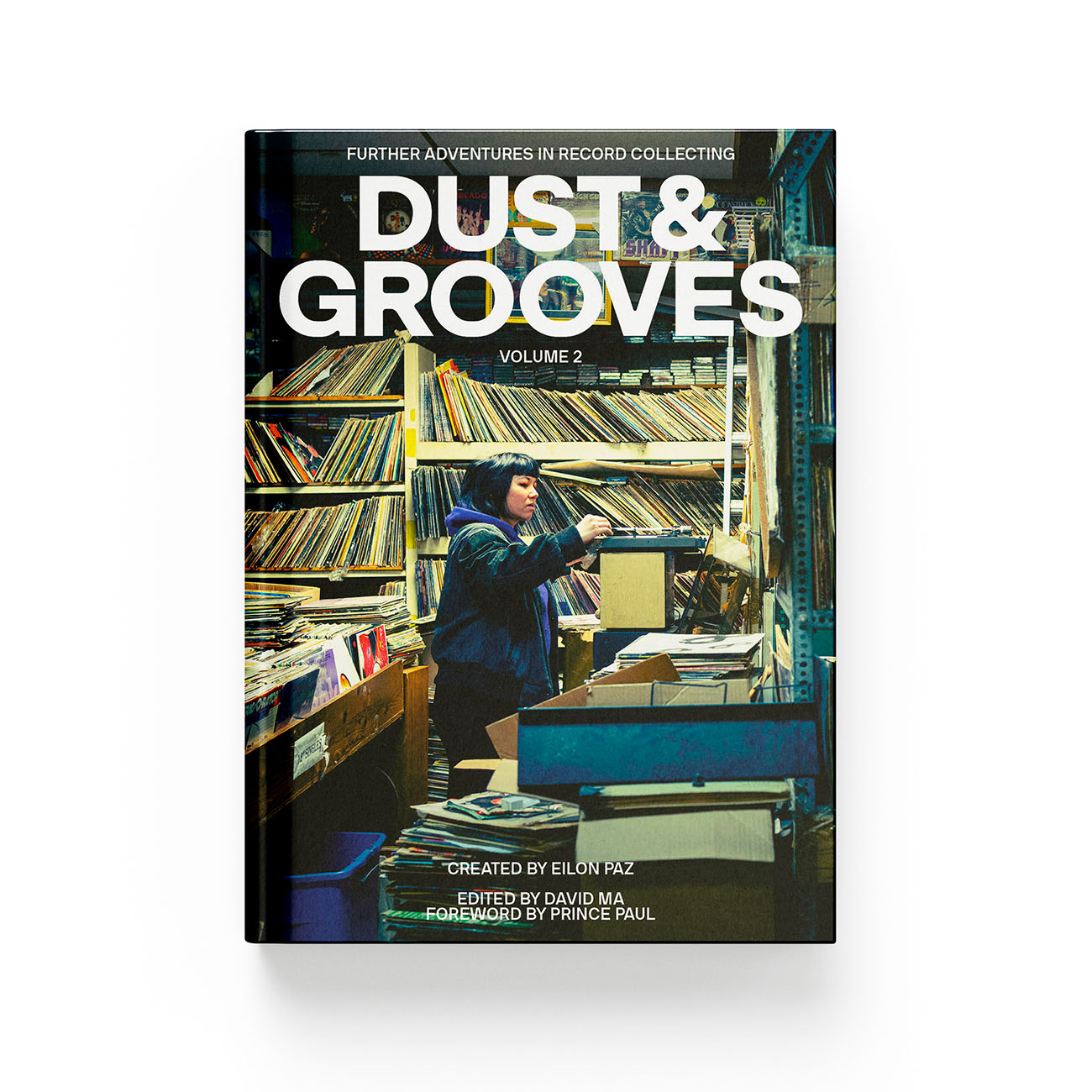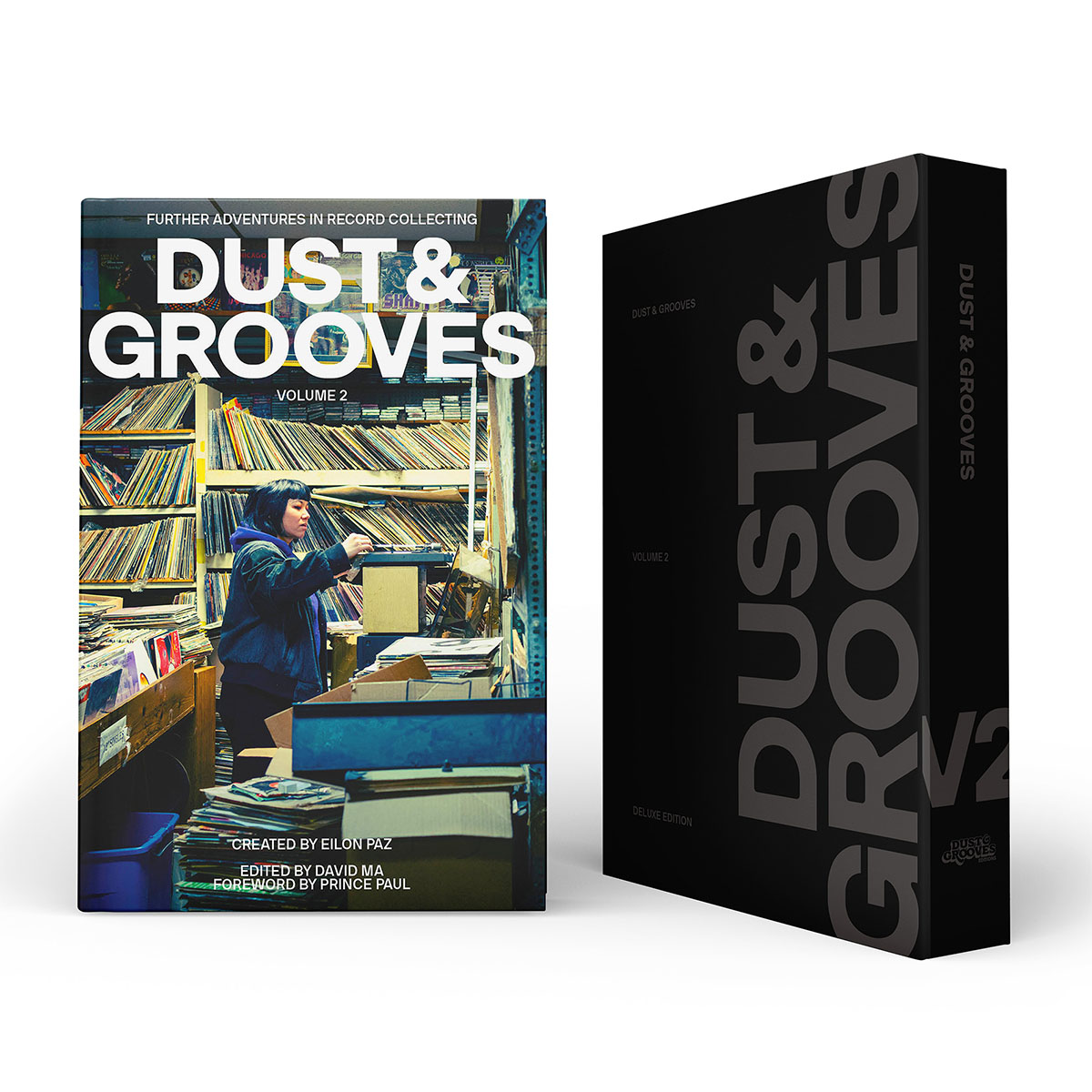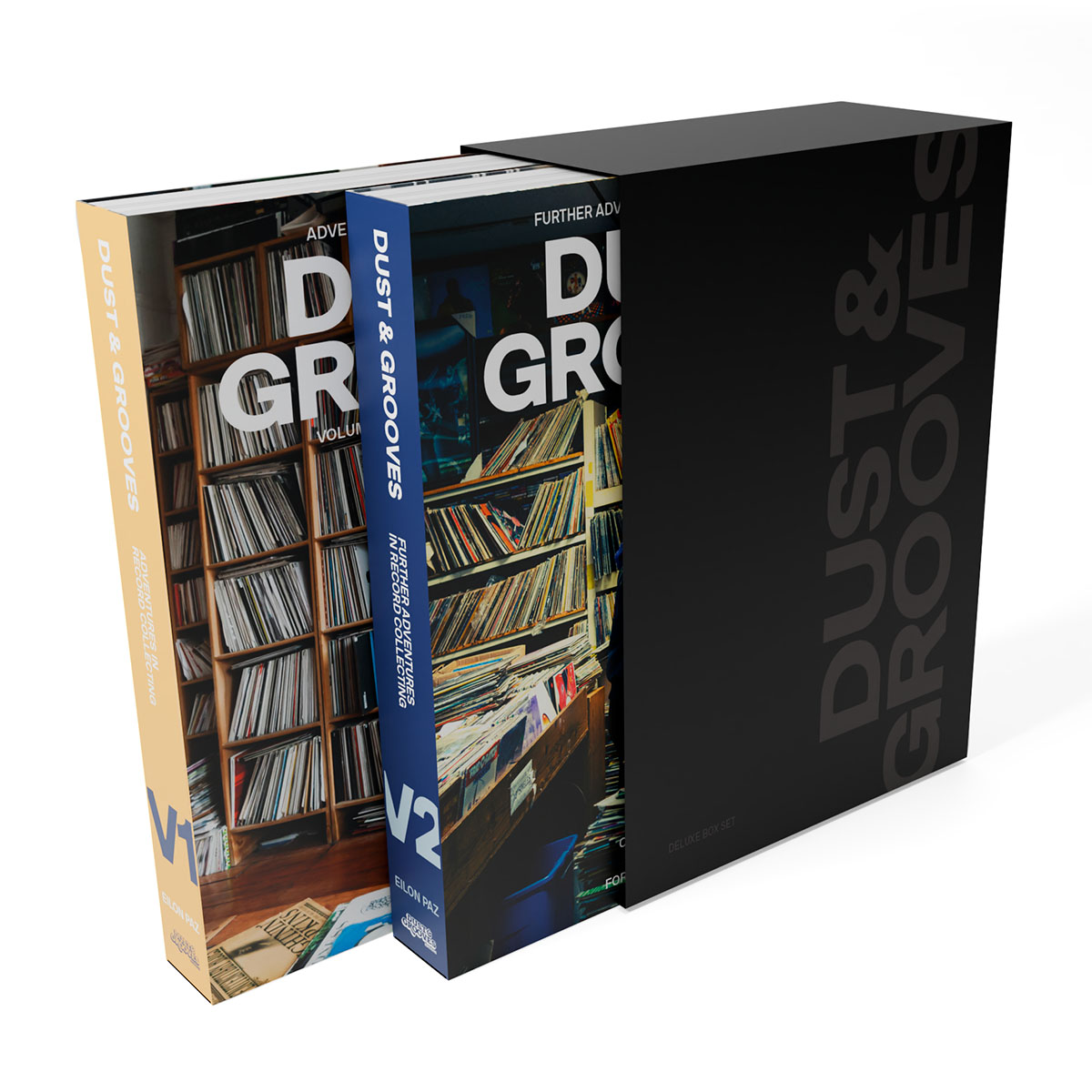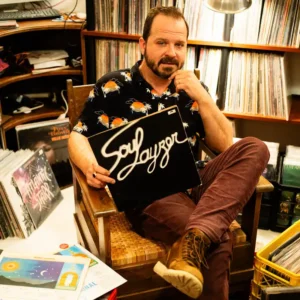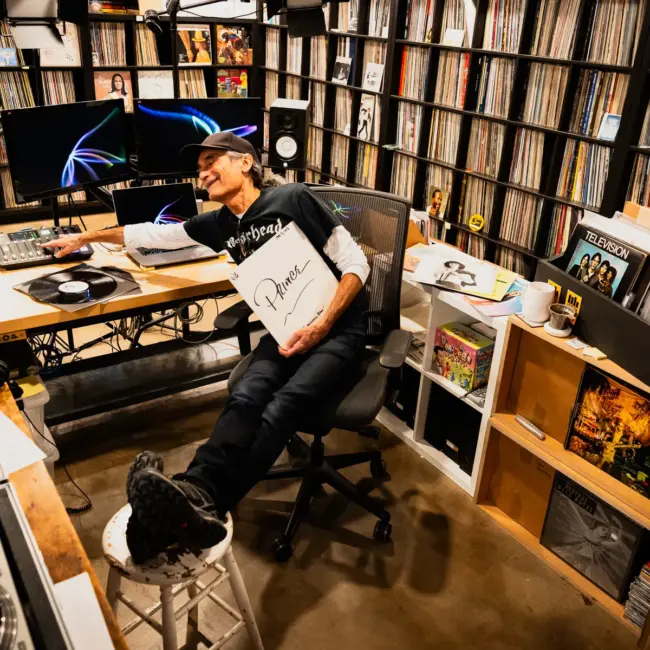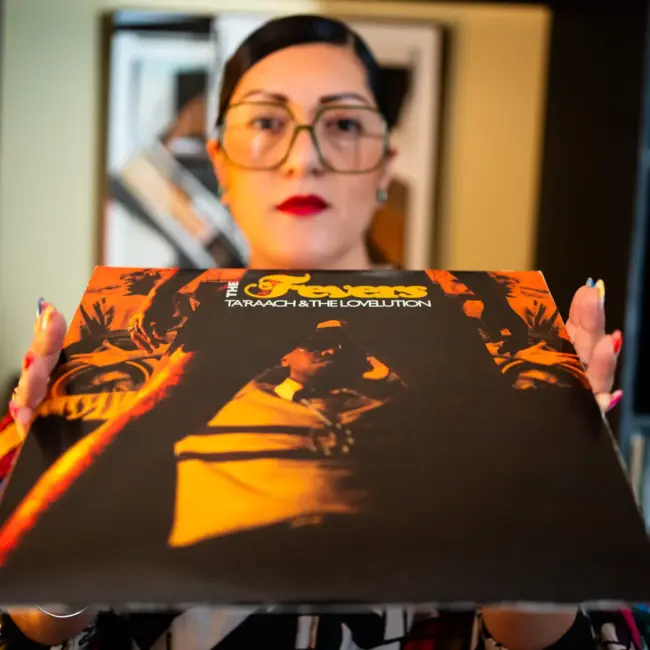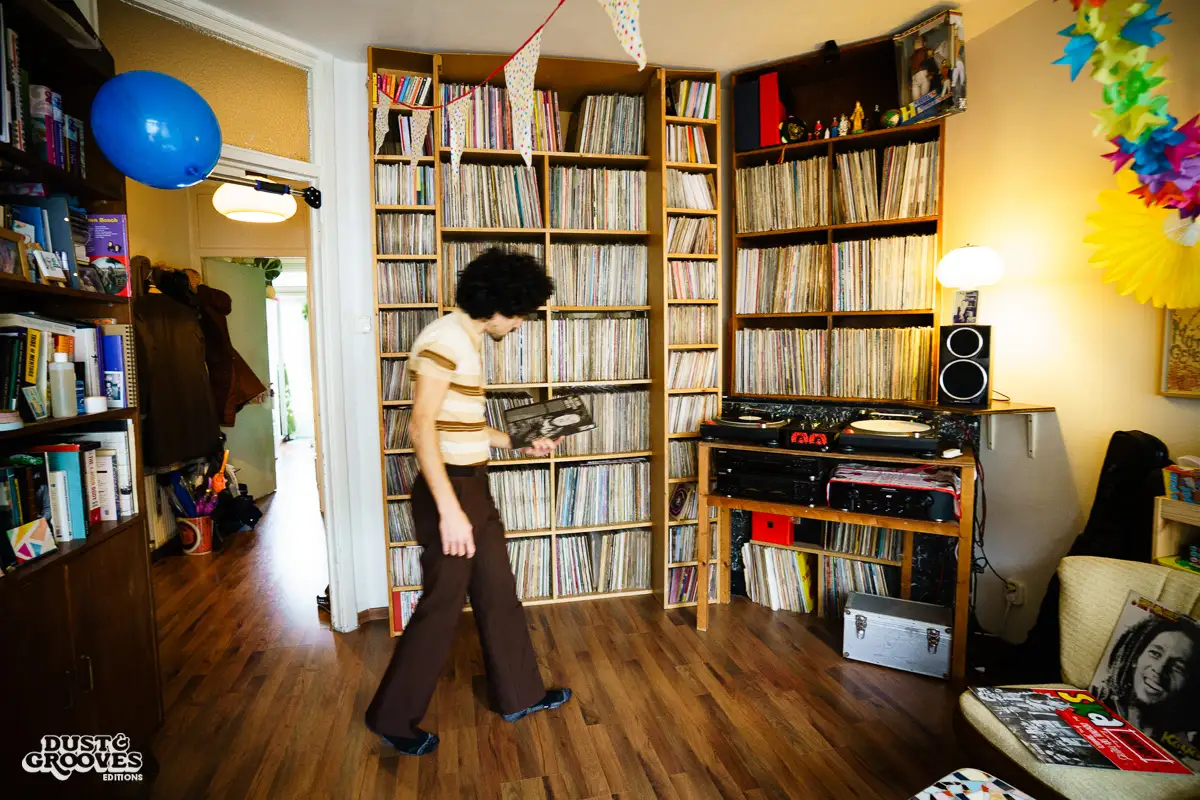
“The only way I will put a record in my collection, is if it speaks to me at a certain level, if it has an element that I find attractive, or that I connect with, I will give it its place on the shelf.”
Alex Figueira Tweet
You were born in Venezuela, lived in Portugal, and now call The Netherlands home. Tell me a little bit about how you got from one place to the next.
I am descended from Portuguese immigrants in Venezuela. There were almost half a million of them who came to Venezuela in the ‘60s, so I’m a descendant of that community. My mother was 14 and my dad was 18 when they arrived. My mother immigrated with her parents and my dad came on his own.
When did you leave Venezuela and why?
I was almost 17 when I left because I wanted to go to university. I wanted to carry on studying and it wasn’t easy if you didn’t have money. So the options were to go and work in the bakery with my dad, or go to Portugal.
What did you study?
I studied advertising and marketing and have used some of that with my record label, my music, and some of my ventures, but if I had to choose again, I’m sure I wouldn’t choose that.
Your first record was Bob Marley which you must have bought in Venezuela—what drew you to reggae or Jamaican music?
It basically comes down to the fact that the biggest or the most popular band at the time when I was a teenager happened to be a band that was predominantly playing ska and reggae. The band was called Desorden Publico and they were huge, they were the biggest band in the country, the band that was playing on TV, playing on the radio, filling up stadiums, etc. When they made it to the mainstream, they carried on, they didn’t sell out; they kept on doing covers of Jamaican classics, talking about their influences whenever they had an interview on TV or radio programs. They had columns in newspapers and they were evangelizers in their own way.
I would always listen to the program that the singer and the bass player still host to this day, it’s called Radio Pirata every Saturday night on public radio. I was only 14 When I started listening, and I wasn’t allowed to go out on Saturday night, so I would just listen to the freakin’ program religiously. I would never miss one.
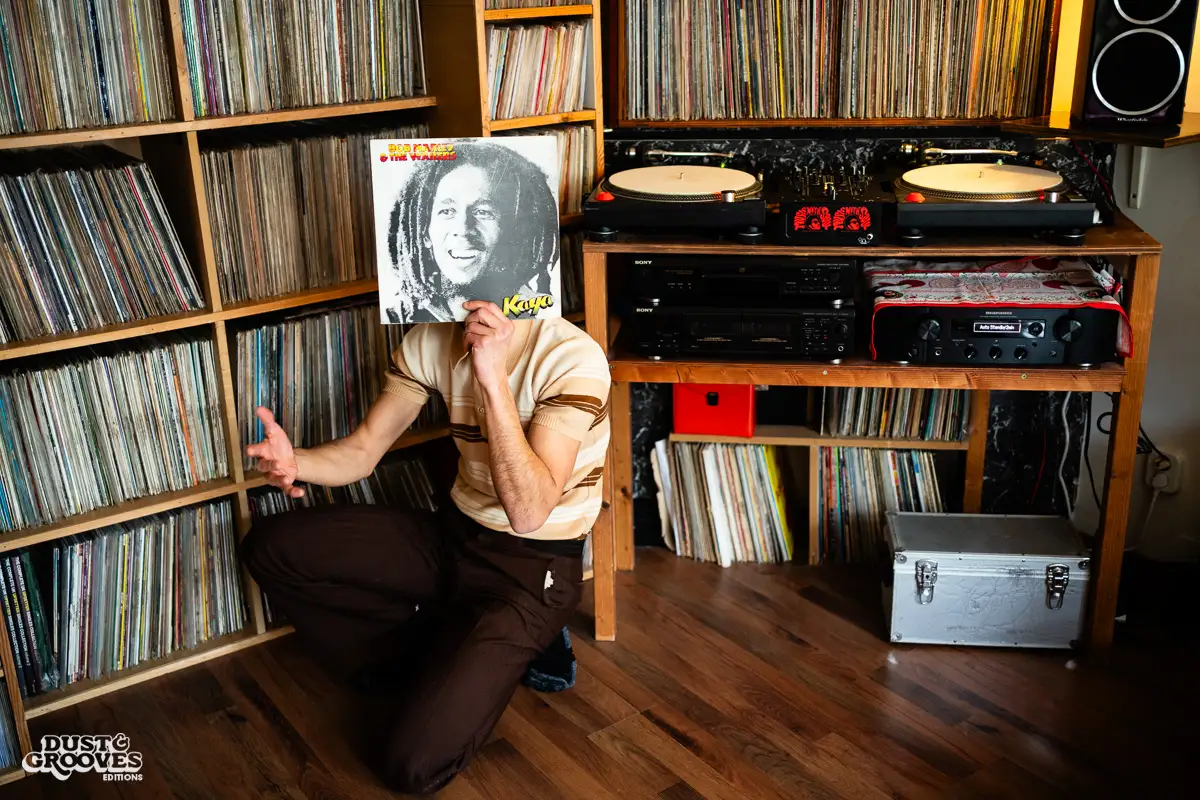
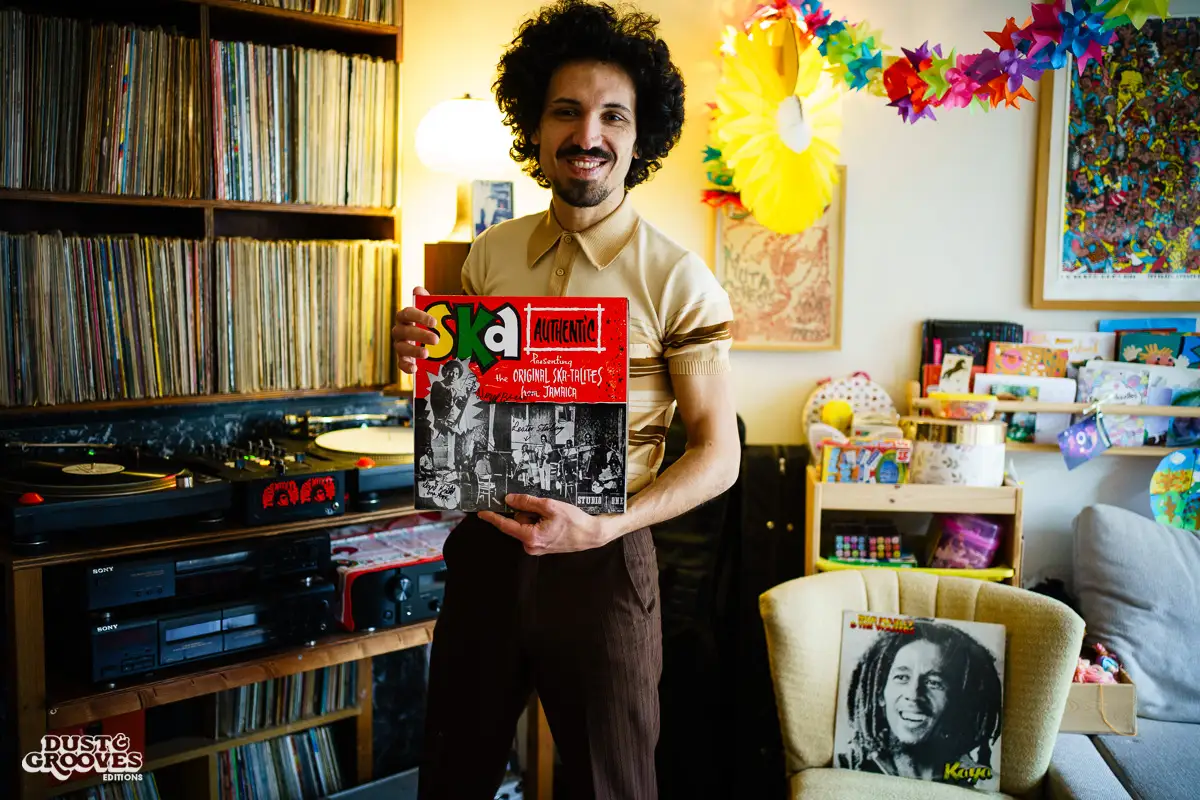
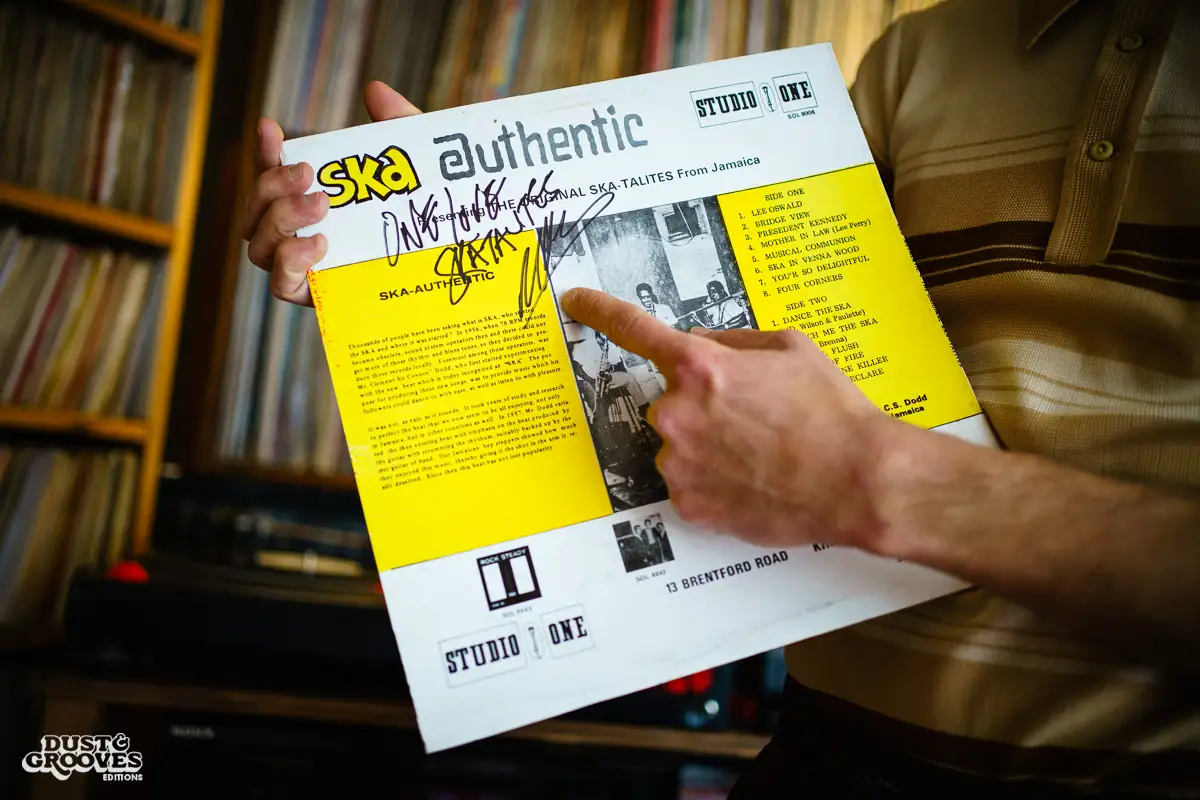
So, were you collecting vinyl at this time?
Initially, I only had money for cassettes. I wanted to buy CDs, but I didn’t have a CD player. And I definitely had no money for CDs. So that’s when vinyl became an option. My mom lived in the western part of Caracas which was poorer, so there was a lot of second-hand stuff happening, second-hand vinyl especially. And I remember I specifically started collecting vinyl because I had a small job with my cousin. She used to do this third-party service washing tablecloths for restaurants in the center of the city. She eventually started asking me to bring the final products back to the restaurants before they opened. It was a small job that gave me some pocket money. After I delivered all the stuff, I had to take the bus back to my mom’s right at the place where all the vinyl sellers were located. It was right there, I just couldn’t escape it. My mom still had a turntable. It was a fairly cheap and easy way to access the music I wanted to listen to.
“Don’t waste your time chasing the ‘holy grail’ that everyone glorifies. That trophy record everyone’s after today was probably a 50 cent bargain-bin find that nobody cared about 40 years ago. Future grails are being released by artists right now—and most people are ignoring them.”
Alex Fugueira Tweet
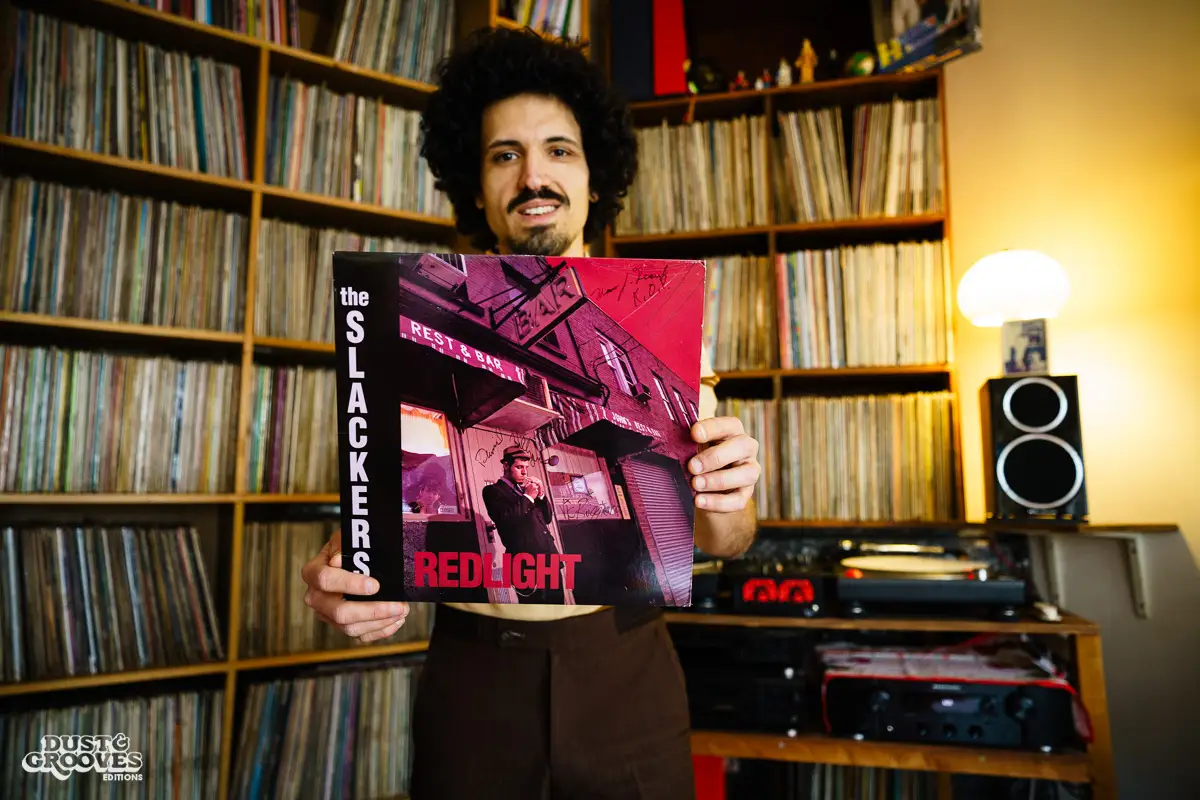
Did you have much of a collection before you went to Portugal?
No, it wasn’t that big because I only wanted to buy stuff that was reggae-related. And there wasn’t much, you know.
So then you were in Portugal to study. How did music become a part of your bigger life? Did you play in any bands?
There were a couple of failed attempts. I knew I wanted to be a musician. It was clear to me. But of course, if I told my mom, “I’m gonna go to Portugal and I want to be a musician,” I don’t know if she would have put up with the plan, you know?
It took me maybe a couple of years to find the people because I wanted to play Jamaican music and there wasn’t exactly a scene in Lisbon. There were a few skinheads and punks; they had a small scene and I ended up hanging out with them a lot because the ska and punk scenes were always correlated in those days. I played in a few punk bands until I eventually found some people to play ska and rocksteady. I managed to put a band together, my first serious band and we played our own take on Jamaican music. Later on, I started integrating more soul and jazz. And we played our own original music, mostly.
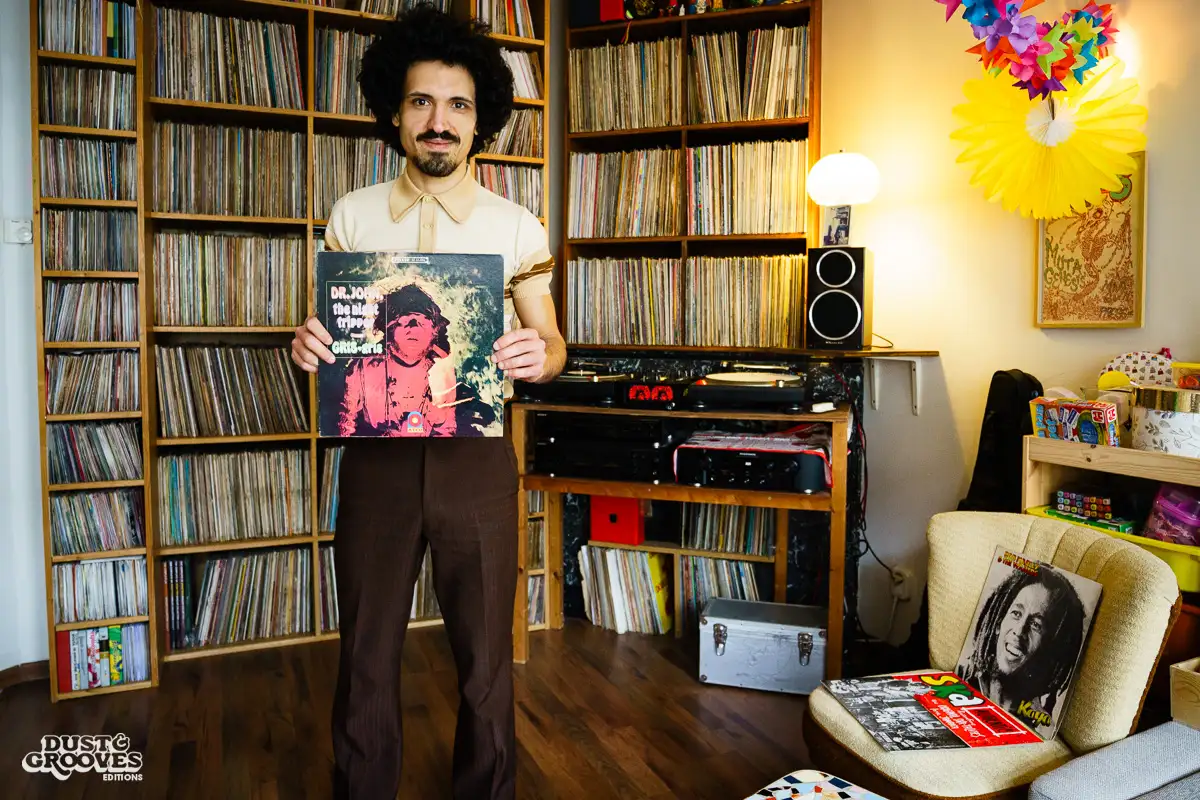
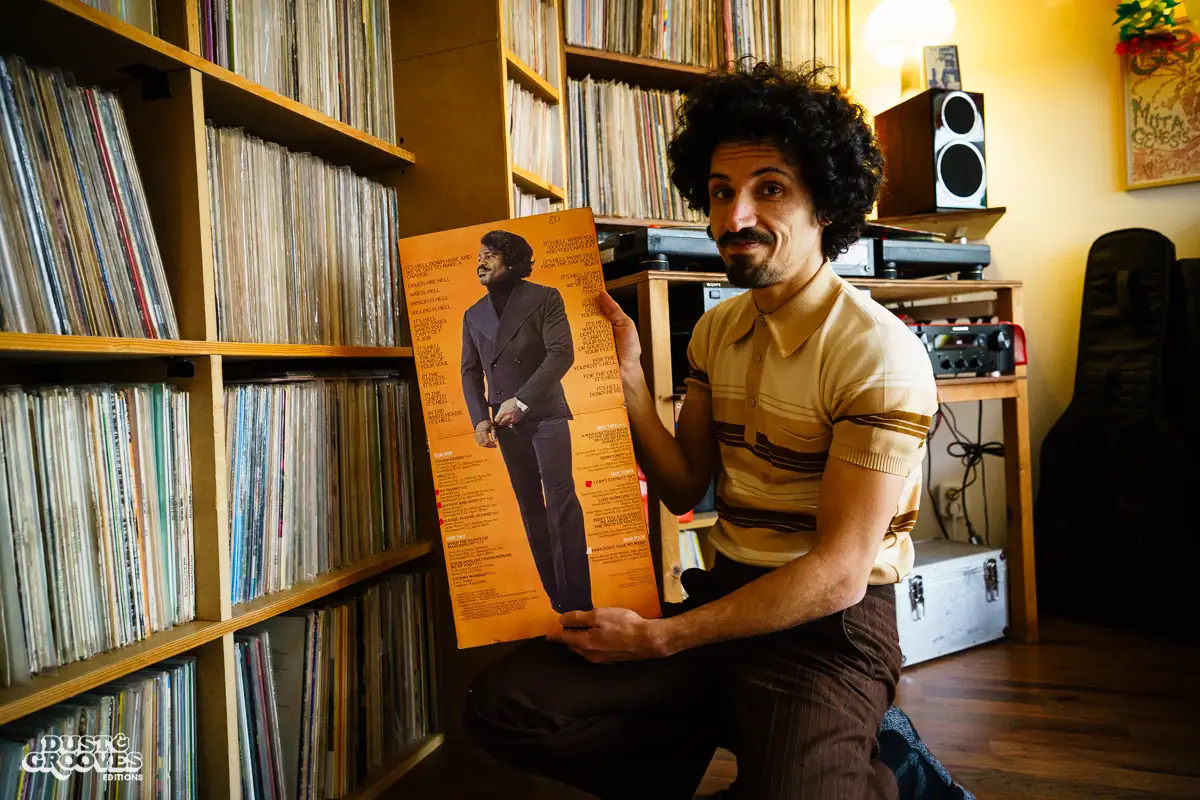
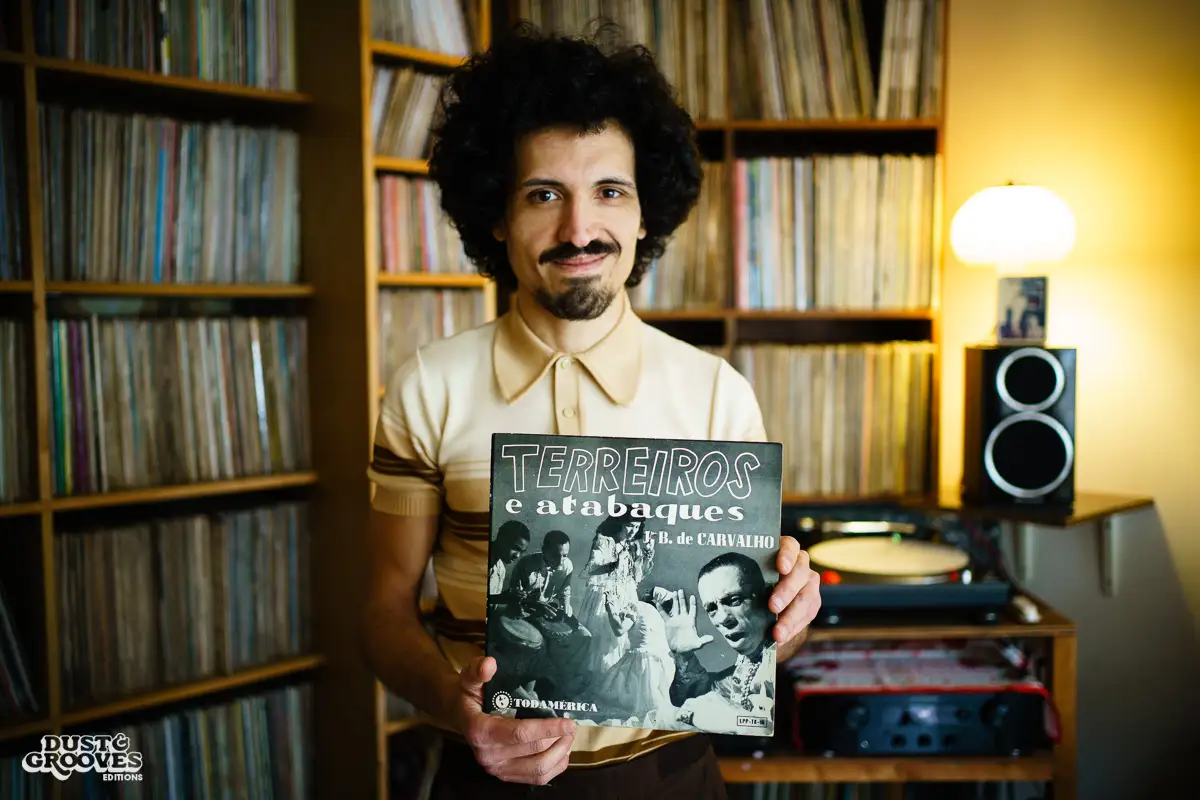
How did record collecting really begin? When did you feel like you actually were not just a consumer but a digger?
I would say my first year in Lisbon when I heard about the flea markets. Yeah, I think that was the turning point. I also met some guys who were on the same quest, let’s call it that, and we used to go right after our university classes. We would go around all the spots, all the stores, all the shabby places, basically any spot that had records we would go check it every week.
Did you have any mentors at this point or were you all the same age, your friends that you were digging with?
Unfortunately, I didn’t encounter any mentors at this specific period. There were guys that I could call mentors, but we didn’t really have that mentorship relationship . . . I looked up to them because they had more money and they had more access to stuff. Sometimes they would just get on a plane and go to London and buy, I don’t know, 25 Records, which to me was completely out of reach, it would blow my mind. But I would go to their homes and listen and definitely learn and try within my means to emulate what they were doing.
Jumping forward, you mentioned Américo being a major influence. Do you have any other mentors?
I’ve met some people over the years, people who are generous enough to share knowledge and share a lot of interesting information with me. If we’re gonna talk about Latin music, for example, which is another fair chunk of my collection, there’s a guy called Gerardo Rosales. He plays percussion alongside me in the band that I spend the most time with nowadays, Conjunto Papa Upa. So he’s not only my bandmate, but he’s played more of a mentoring role and he’s also a collector. He’s definitely turned me into some very important stuff. I have learned so much about Latin music because he’s basically a walking encyclopedia when it comes to the subject, and every time we see each other he has a new anecdote or interesting fact. It’s incredible.
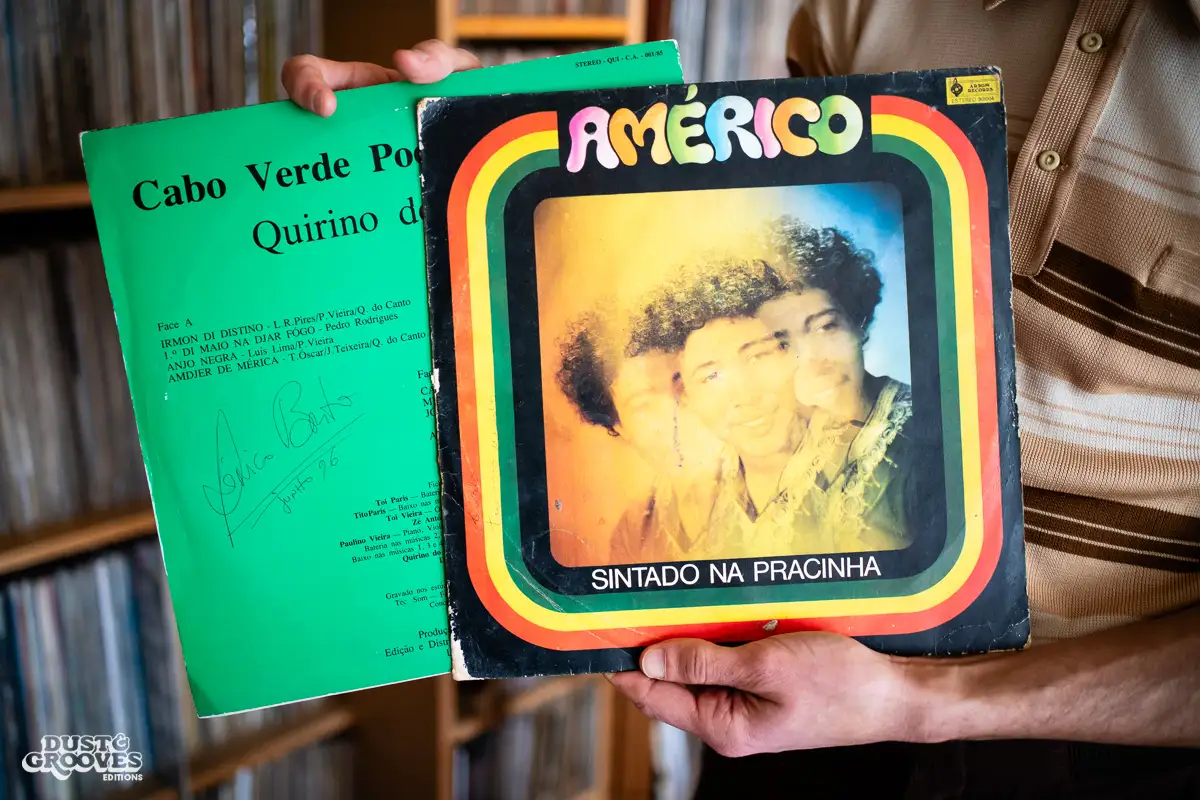
“One of the things that’s very common across the records that I collect is the Voodoo element. I have a bit of an obsession with the occult, especially African-originated religions in the Americas, both North and South.”
Alex Fugueira Tweet
What is your comfort record? The one that always puts you in the right mood?
One record that always grounds me and that is very significant for me is Paulo Bagunça e A Tropa Maldita. It’s an album that I love, I feel like it was tailor-made for me. Every single song totally transports me. It’s got so many different layers to it and different environments. I think that’s a perfect record. I don’t know if you can call it a comfort record, but it takes the edge off when I need it to.
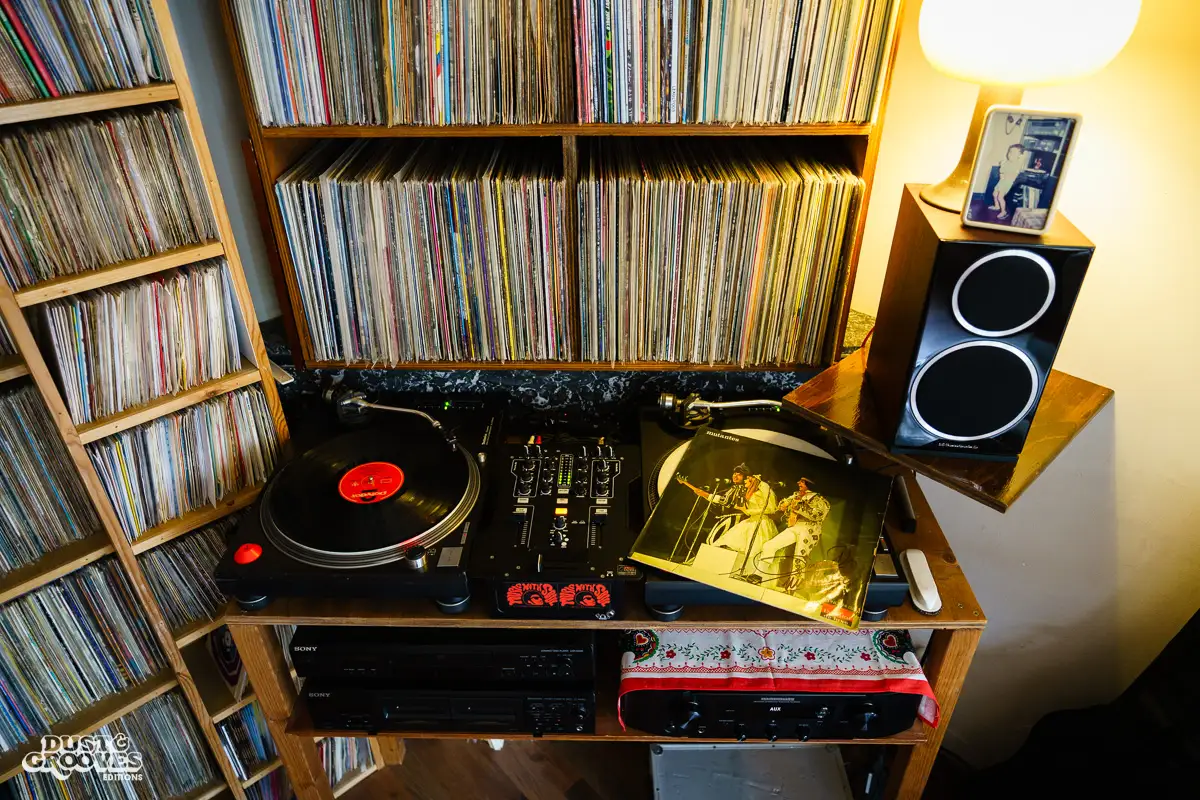
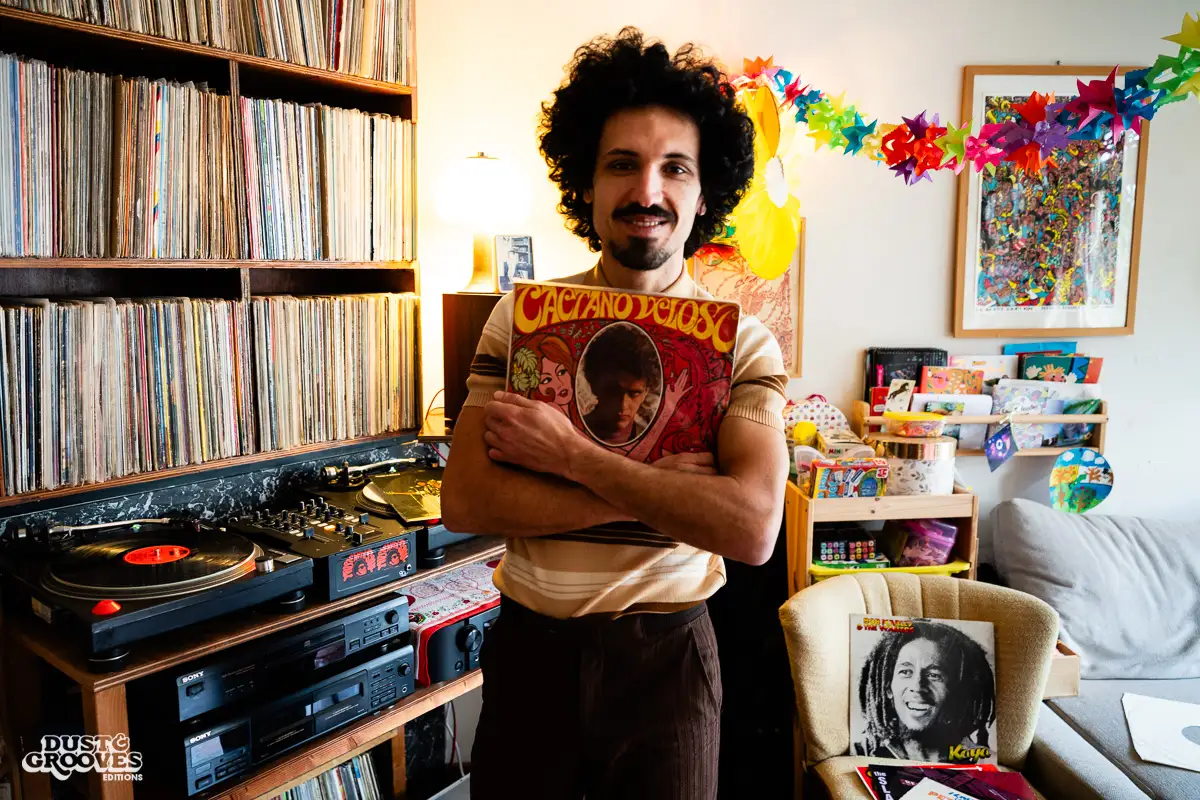
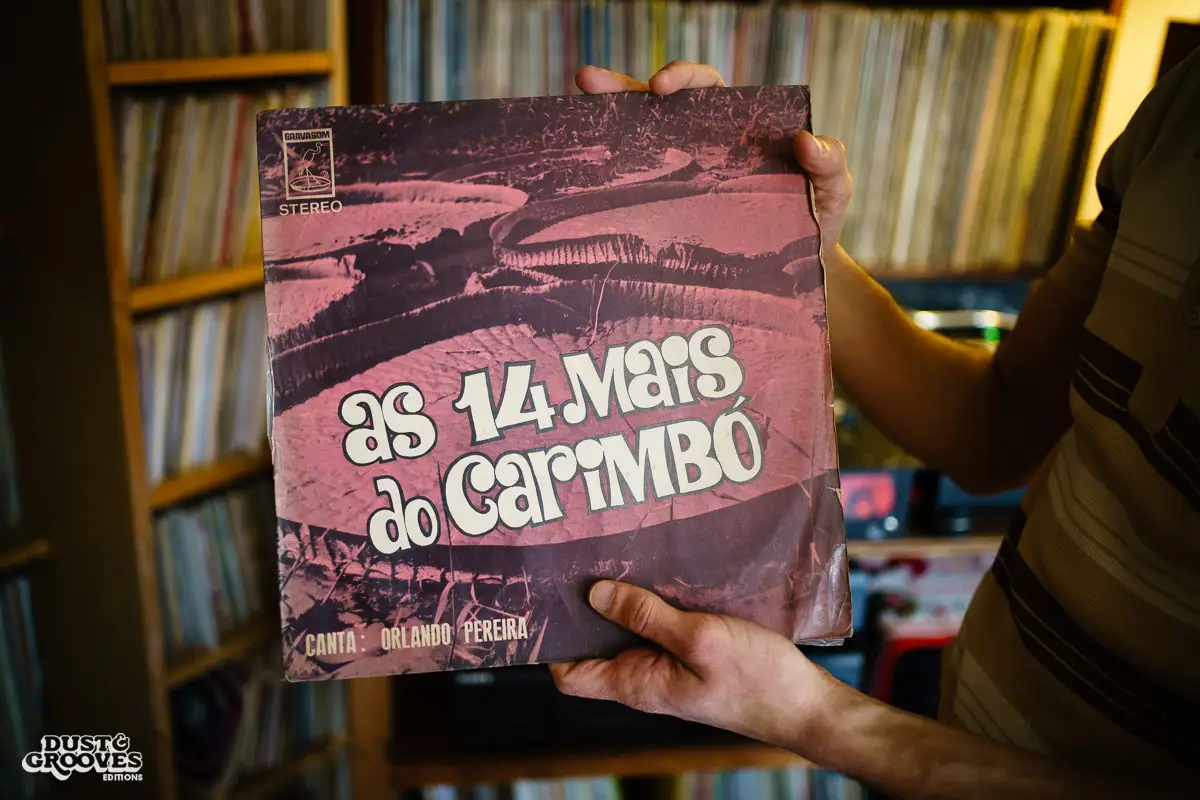
What’s the weirdest story behind a record?
I mean, the Grupo Pan record is one of those stories. I spent 10 years tracking that record. I’m talking pre-Discogs days . . . There was a point in my career when I knew every single significant dealer or collector in Venezuela. I was going back a lot, mostly to buy for my shop and they all knew that I was looking for that record, but nobody wanted to sell the damn record! All of the predominant collectors had it and none of them wanted to sell it, until eventually one of them said “Okay, I’ll send you my copy. I want 100 bucks,” which doesn’t seem like much now, but back then it was. I was like, “You know what, fuck it, I’ll give you 100 bucks, here you go,” and I was super happy to finally find the record.
After I had the record, and I had the names, I knew I could trace them down and get to know the story behind them. That’s what eventually led me to meet the singer. The moment he told me that they had taken the pictures in the neighborhood where I grew up, was a very spiritual closing of the circle, if you may call it that. It’s probably just a mere coincidence, you know, but it doesn’t cease to amaze me.
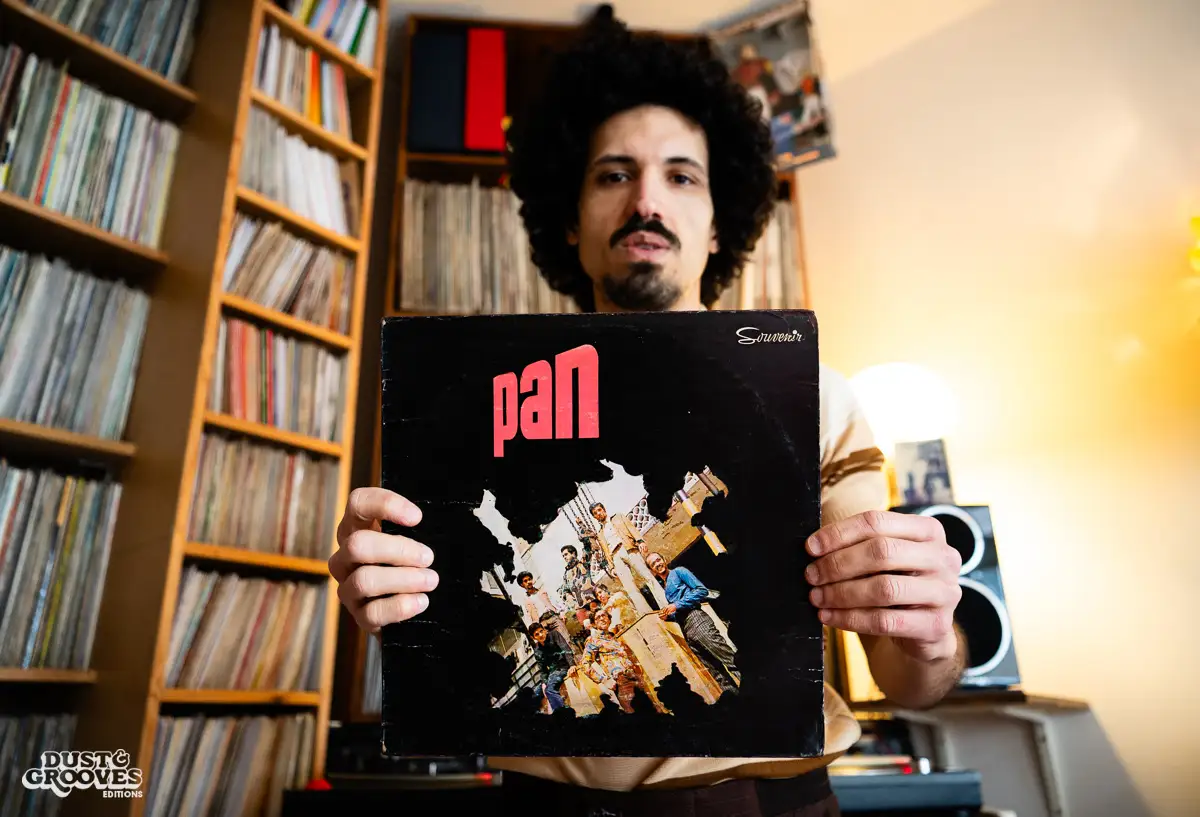
Any series of records that you’re trying to complete or specific artists that you follow?
I am not much of a completist myself. Honestly, I believe that I have too many records. Maybe this is controversial for the sake of Dust & Grooves, but I think the amount of records that I’ve gathered is absolutely decadent.
I don’t have to complete anything, the only way I will put a record in my collection, is if it speaks to me at a certain level, if it has an element that I find attractive, or that I connect with, I will give it its place on the shelf. I will never put a record there because it’s made by whomever.
There was a point when I thought like that, maybe when I had not been exposed to the amount of records that I have now been to. So I believe there is a certain threshold that you get to where you realize that you don’t have to have everything and that you just have to get the right amount of the right element and that’s the reason why you do it. So to answer your question, no, there’s nothing that I find I need to complete.
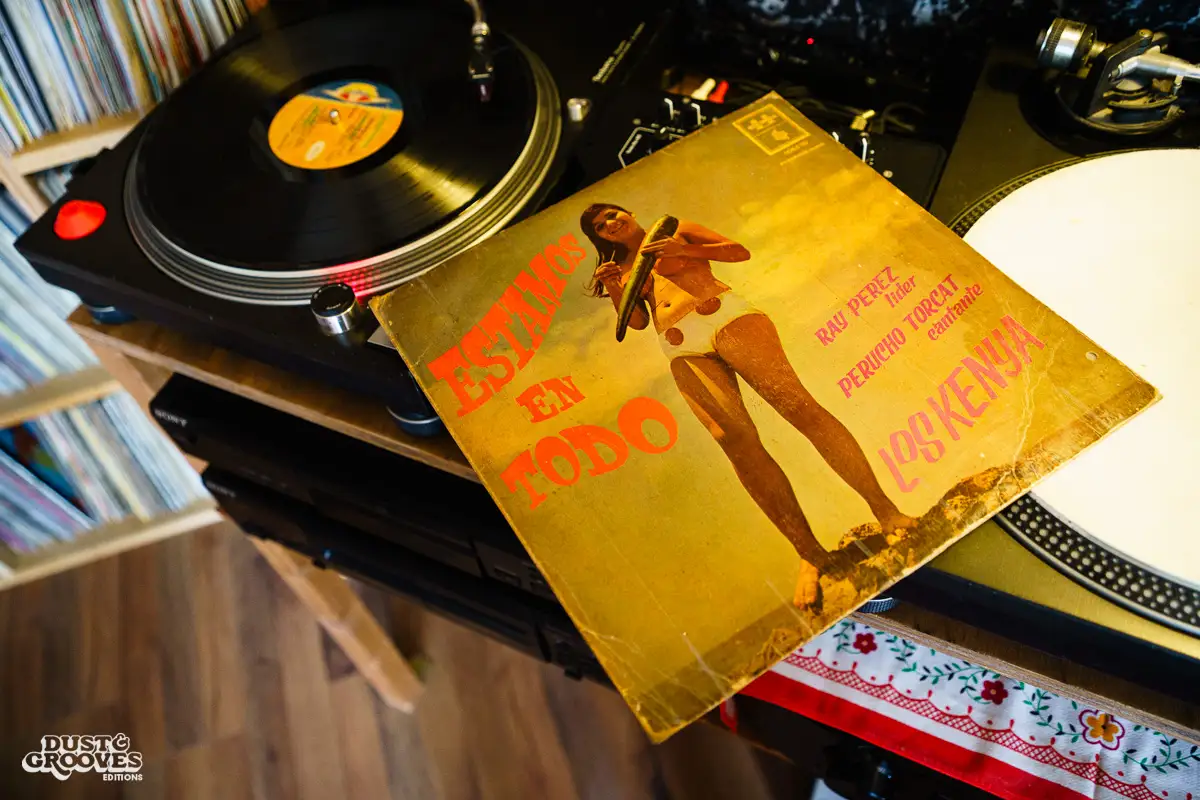
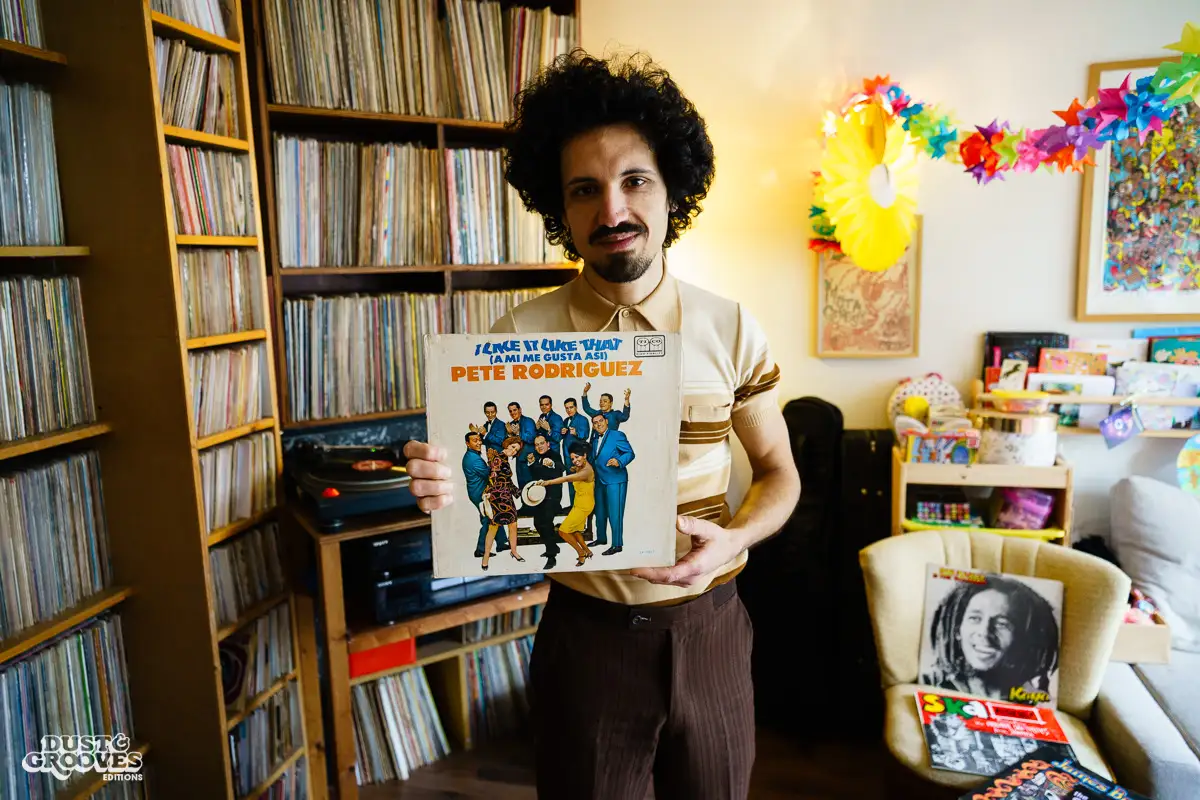
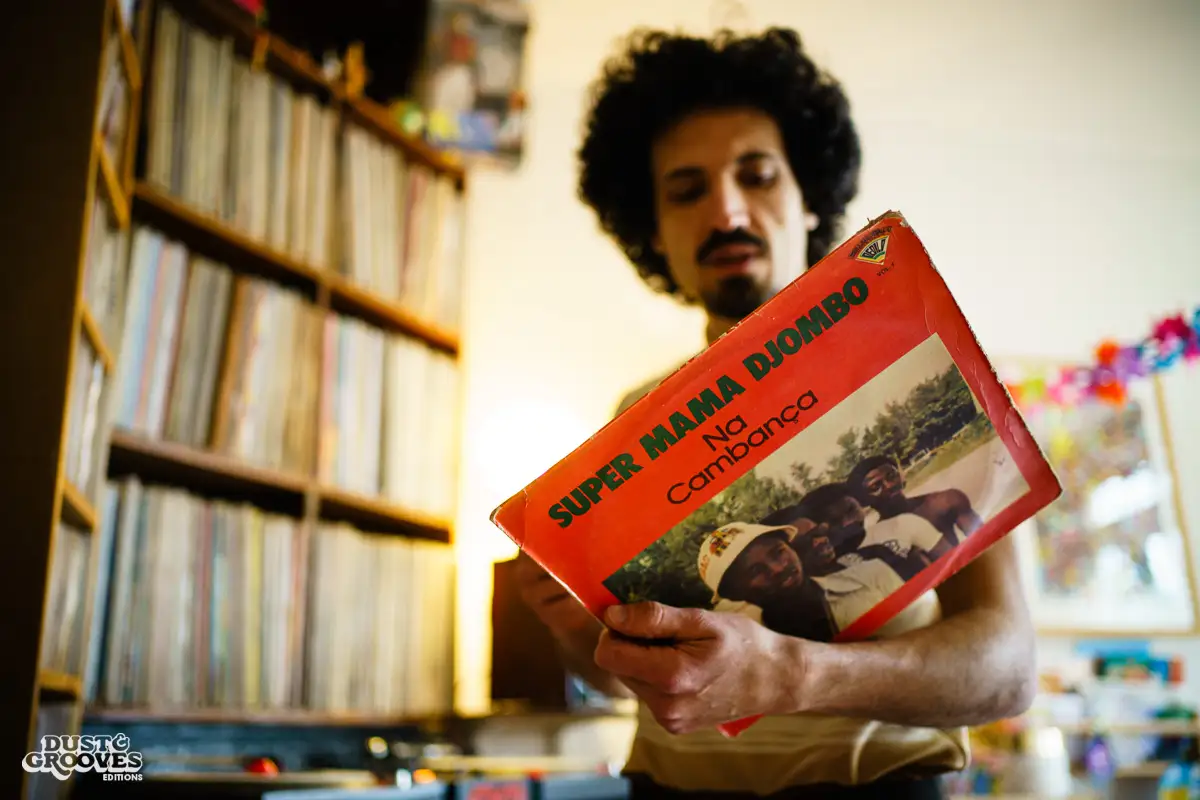
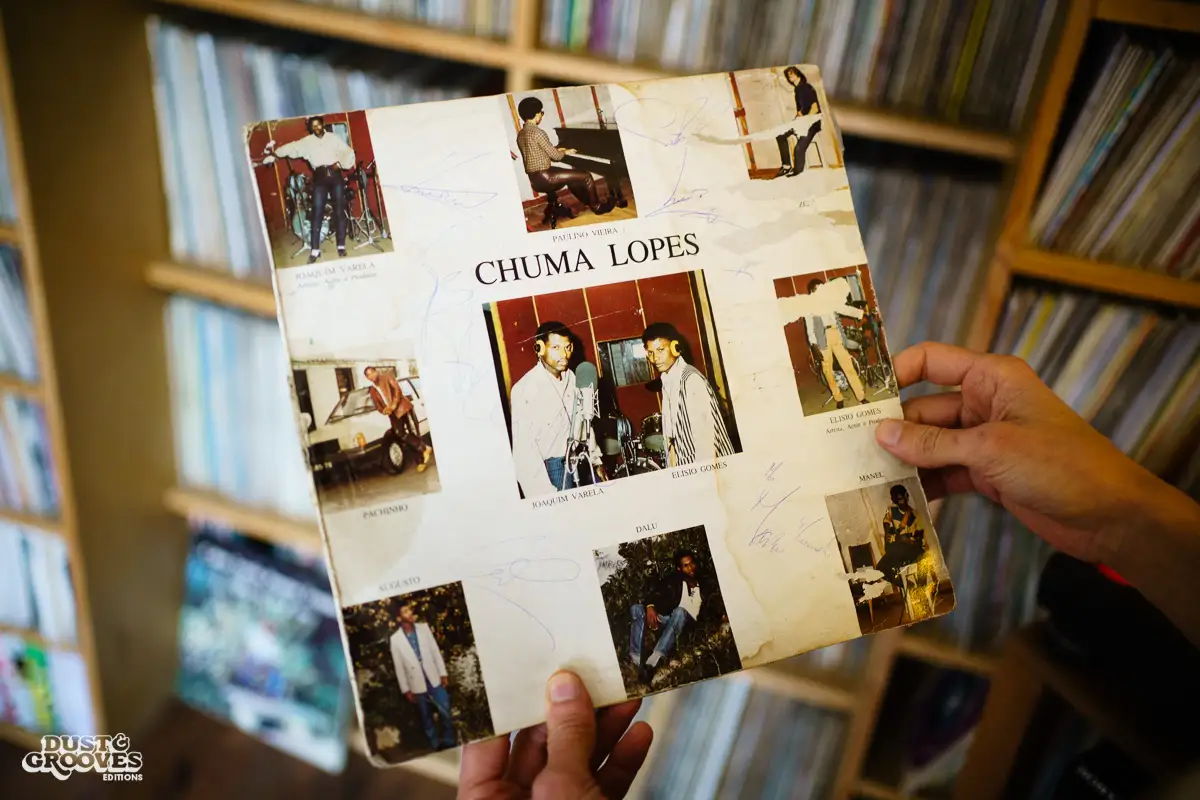
“Don’t let anyone else define what’s cool for you. Take the time to educate yourself—you have resources now that we could only dream of back then…Spend time truly listening, so you can discover your own taste. Once you know what you like, start buying records with confidence.”
Alex Fugueira Tweet
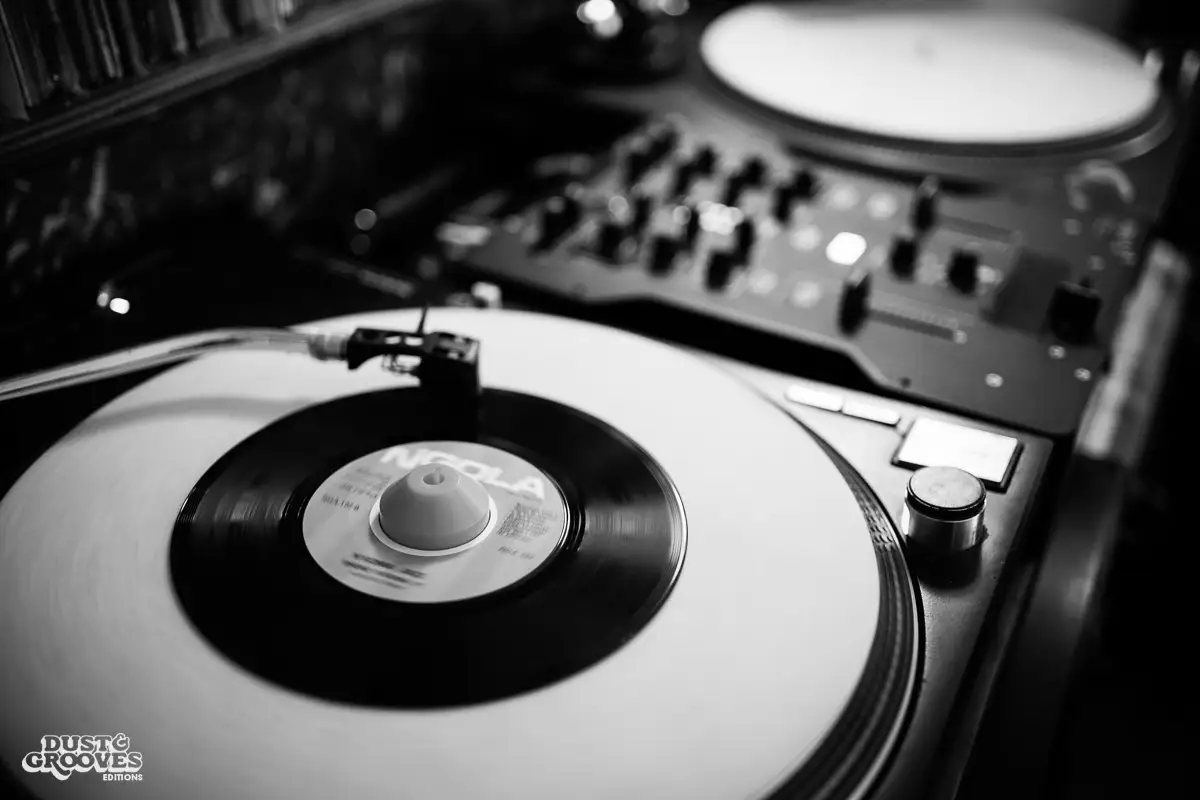
Further Adventures in Record Collecting
Dust & Grooves Vol. 2
Alex Figueira and 150 other collectors are featured in the book Dust & Grooves Vol 2: Further Adventures in Record Collecting.
Any tips for the younger generation just now getting into vinyl?
Look beyond the flash and hype. Don’t let anyone else define what’s cool for you. Take the time to educate yourself—you have resources now that we could only dream of back then.
When I started, we had to collect records because that was the only way to learn. There was a massive amount of incredible music out there, but we only suspected it existed—until we stumbled upon some weird record that completely blew our minds. That feeling of “Wow, what is this? There must be more like this!” was what drove us. There were no blog posts, no videos, no interviews to help us make sense of what we were hearing. All we had was whatever was written on the back cover of the record.
But now, you can listen to Mulatu Astatke’s entire discography with just a few clicks. Take advantage of that incredible opportunity. Spend time truly listening, so you can discover your own taste. Once you know what you like, start buying records with confidence.Don’t waste your time chasing the “holy grail” that everyone glorifies. That trophy record everyone’s after today was probably a 50 cent bargain-bin find that nobody cared about 40 years ago. Future grails are being released by artists right now—and most people are ignoring them. I’d spend my time and money searching for those instead. But remember, you’ll only recognize a future grail if your ears are well-educated. That takes time. A lot of it.
Make good use of your time. Don’t just follow Spotify’s rabbit holes. A much better investment would be to follow the people featured in the Dust & Grooves books and website and explore their recommendations, listen to their radio programs and mixes, and go to their gigs. Pivot on all the effort they have already made.
Oh, and don’t look down on CDs. There will be a book just like this one about CD collecting in thirty years.
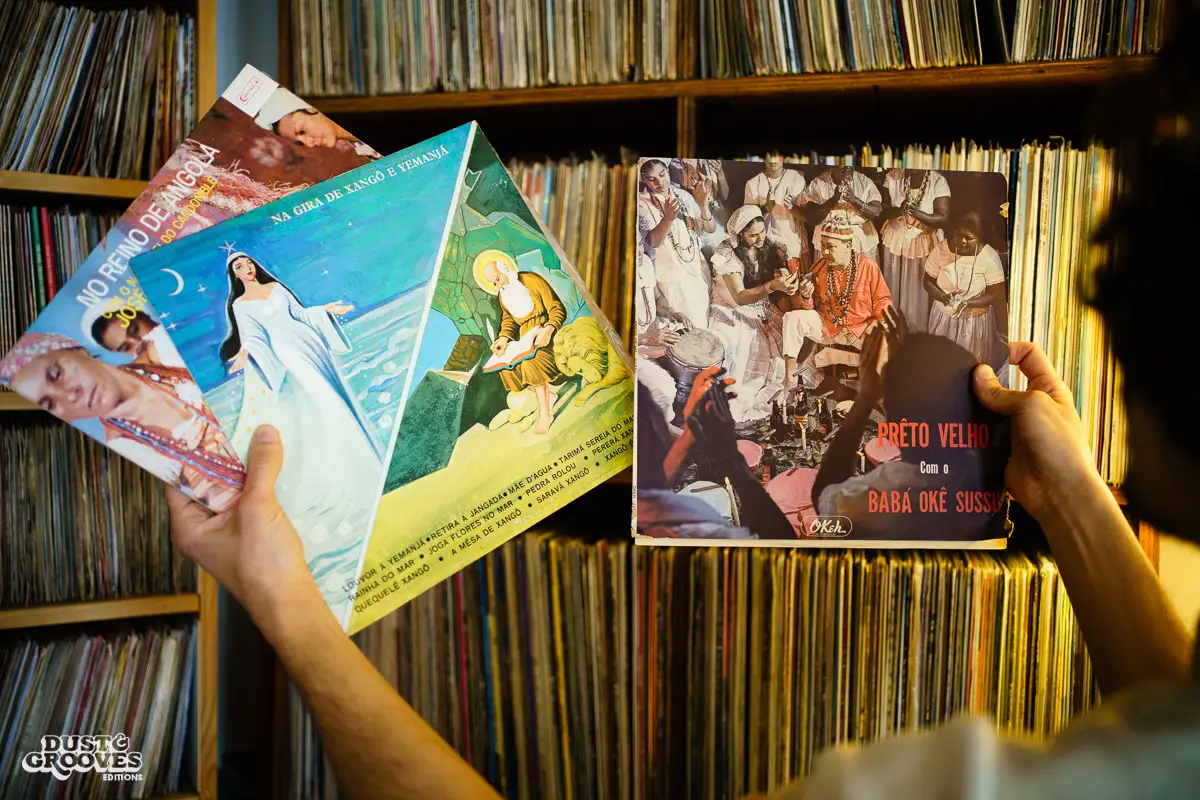
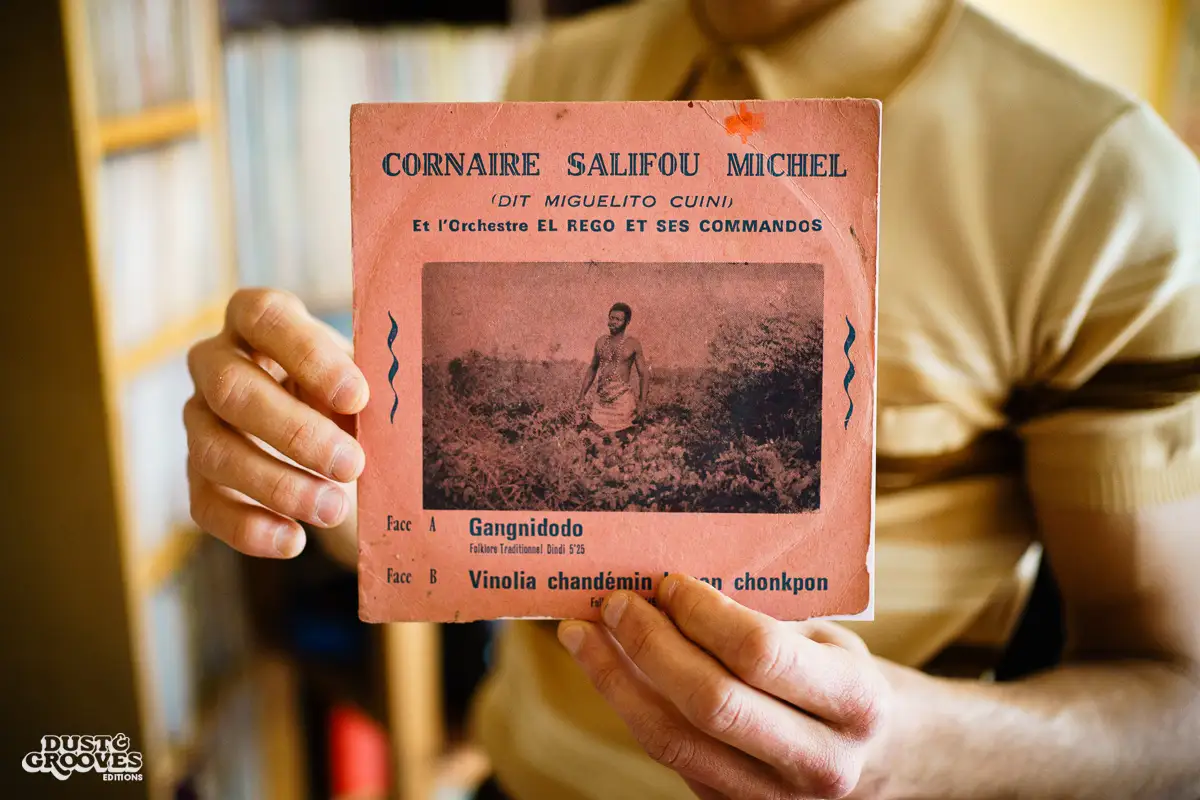
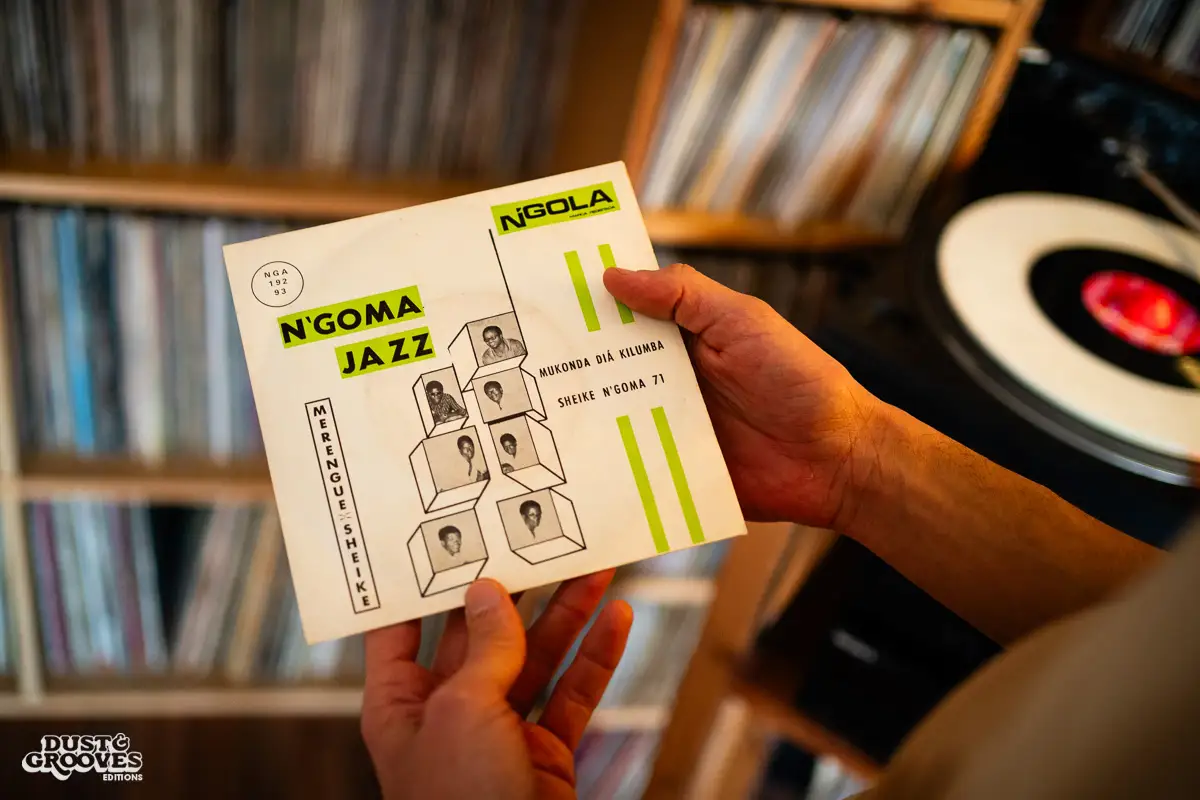
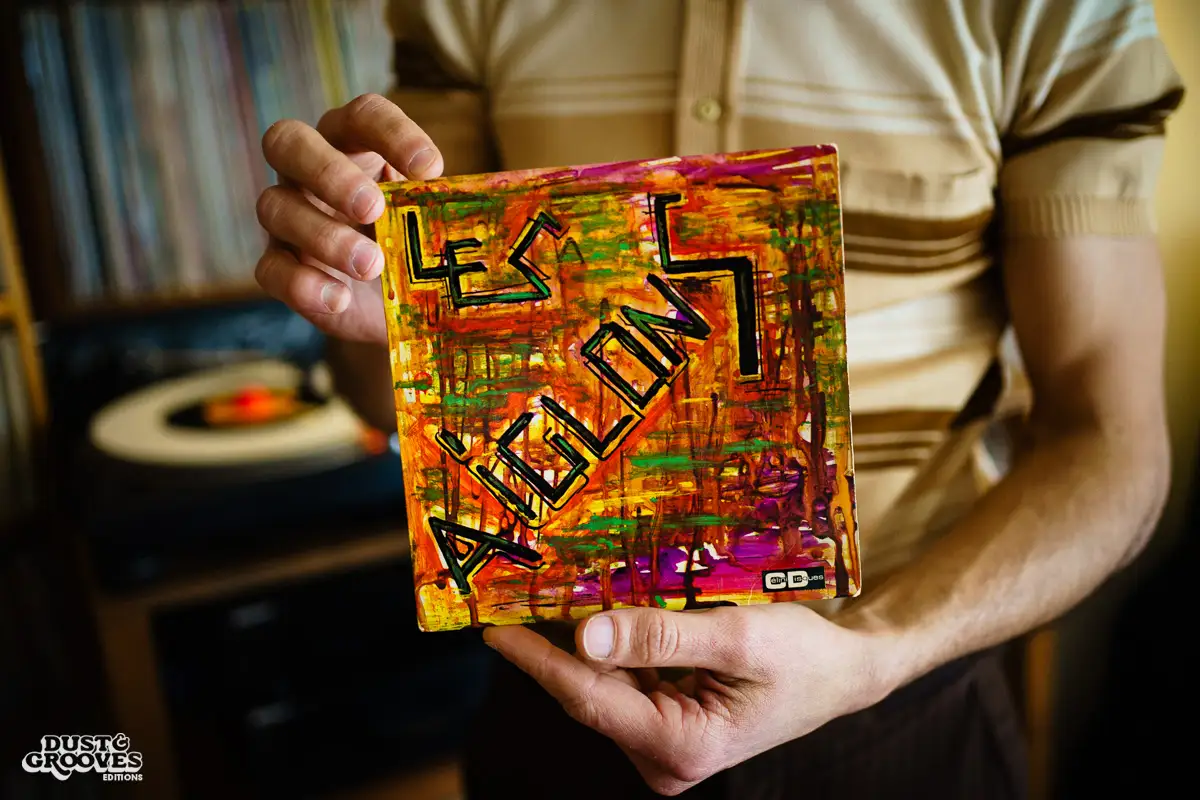
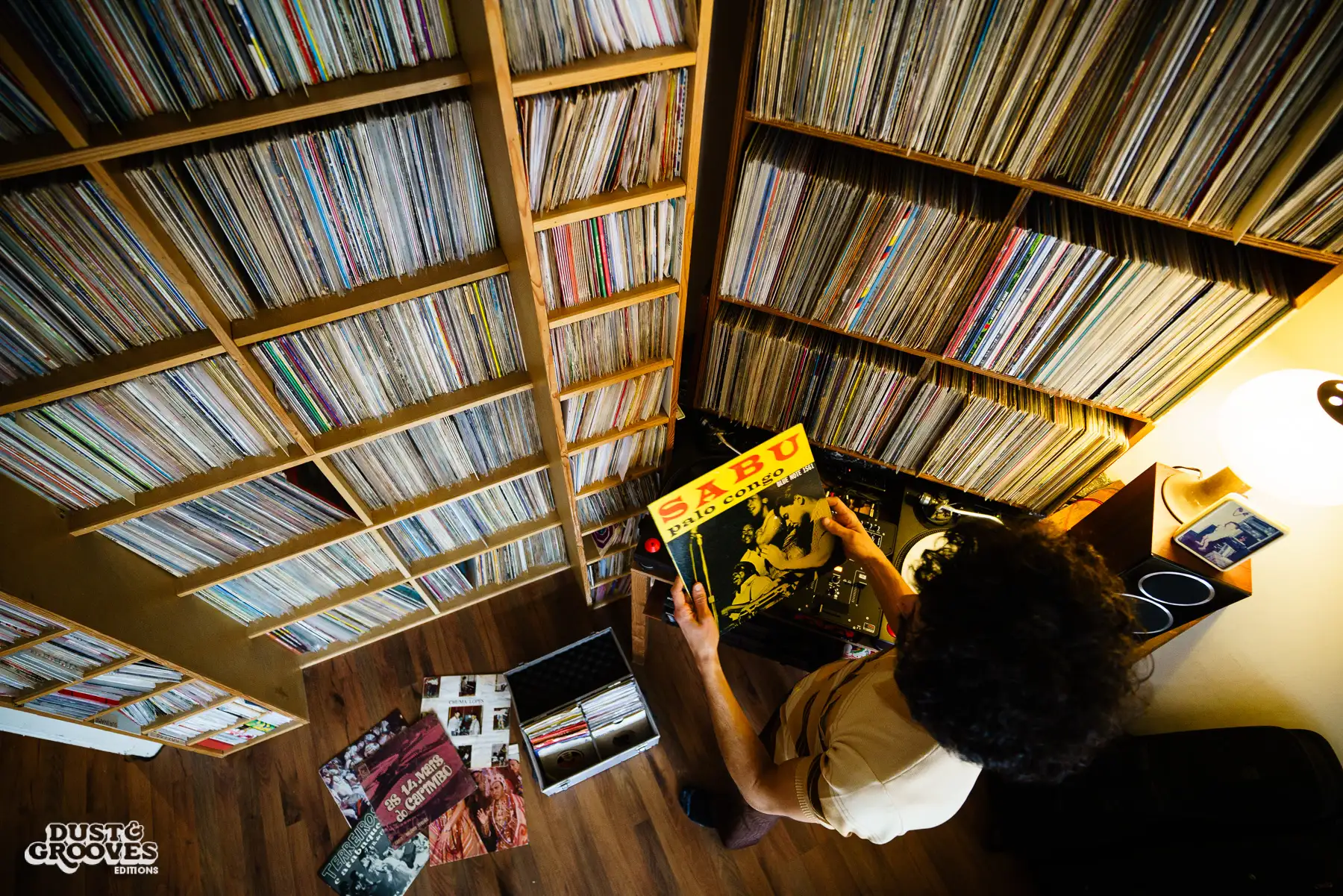
What are you working on now or where can we see or hear you DJ or perform?
I have a new LP under my own name coming up on Jazzagression Records called Colliding Layers. It was all written and recorded in their studio up in Finland and will be part of their New Library Series, so it’s essentially a Library music record, with a stupid amount of synths. The first single, “Monumental Bowl,” is already up on all platforms and I believe pre-orders for the LP are already open. As for performing, I’m going to Colombia at the beginning of March and will do a few DJ gigs in Barranquilla and Bogotá. I’ve been in love with the music of that country for many years so I’m very excited to finally get to know it.
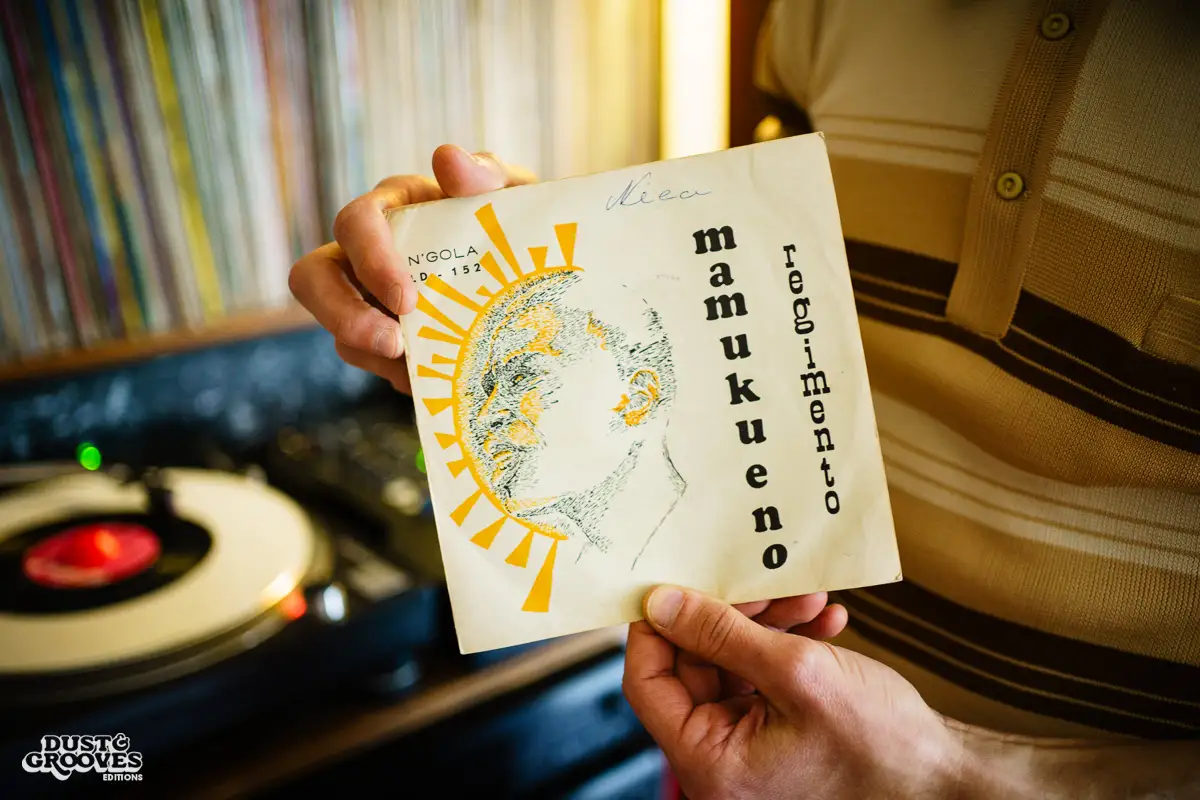
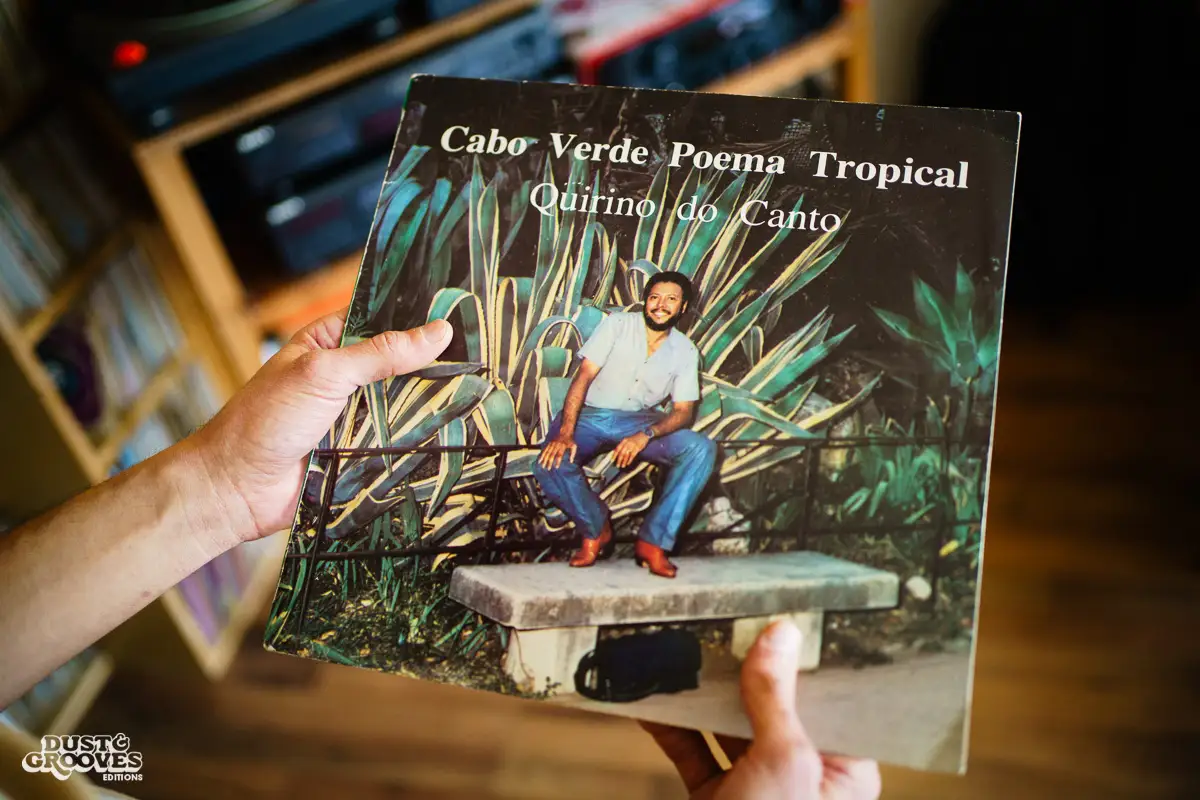
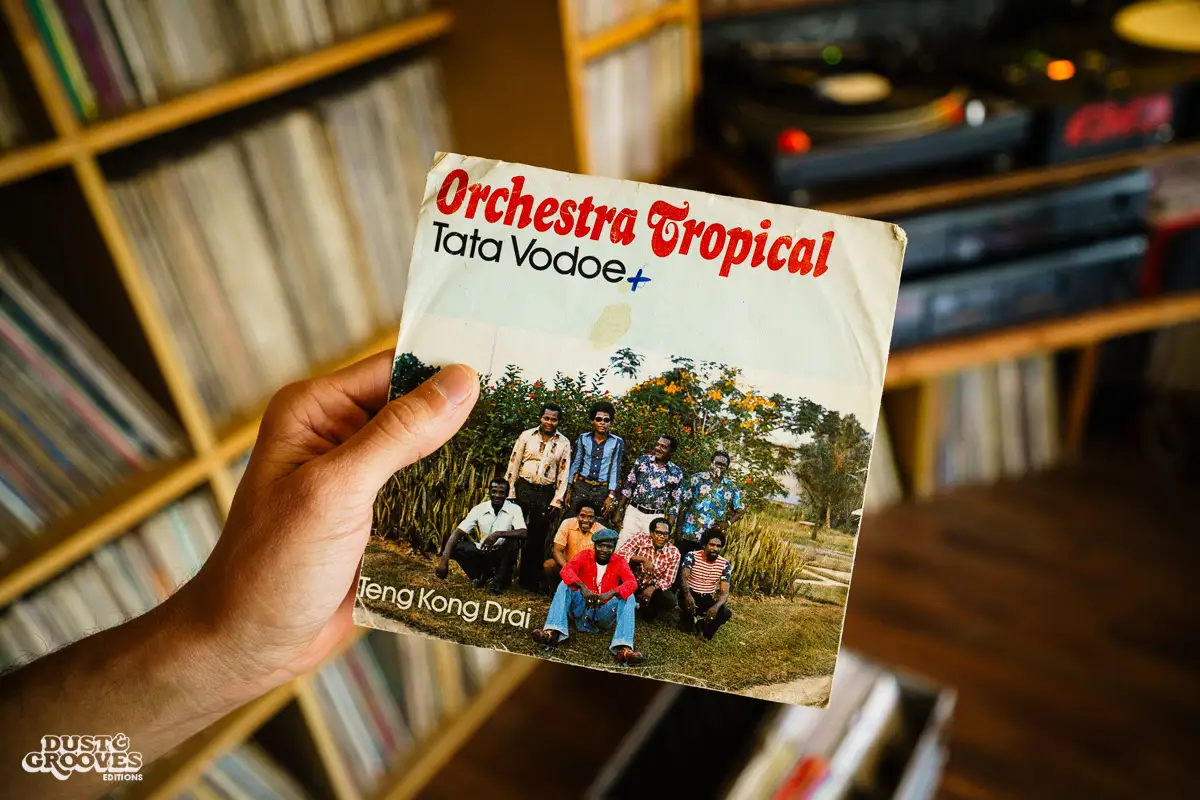
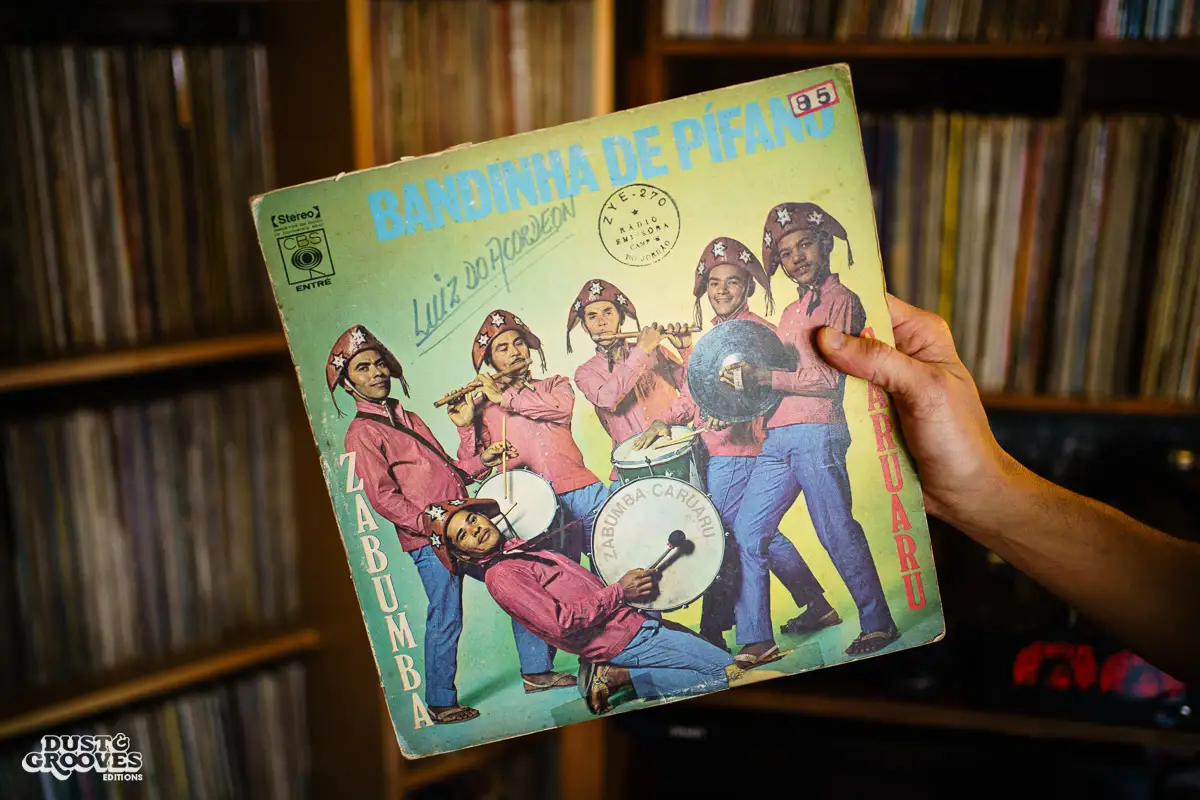
Who would you like to see next in Dust & Grooves and why?
I’d love to see a whole volume dedicated to sound system culture from around the world, showcasing it in its most passionate forms. When people hear the term “sound system,” they often think of Jamaica, but similarly vibrant and influential cultures have developed in other countries, all built around the idea of playing obscure records through loudspeakers for a crowd of dancers. These cultures have left a lasting impact.
I’d love to see the Picoteros from the Colombian Caribbean coast, the Sonideros of Mexico, and the Radioleiros from Brazil’s Amazon, to name a few. For these communities, collecting records is a completely different experience. In many cases, it’s much more than a passion—it’s their livelihood and identity. I think exploring these unique traditions would be phenomenal.
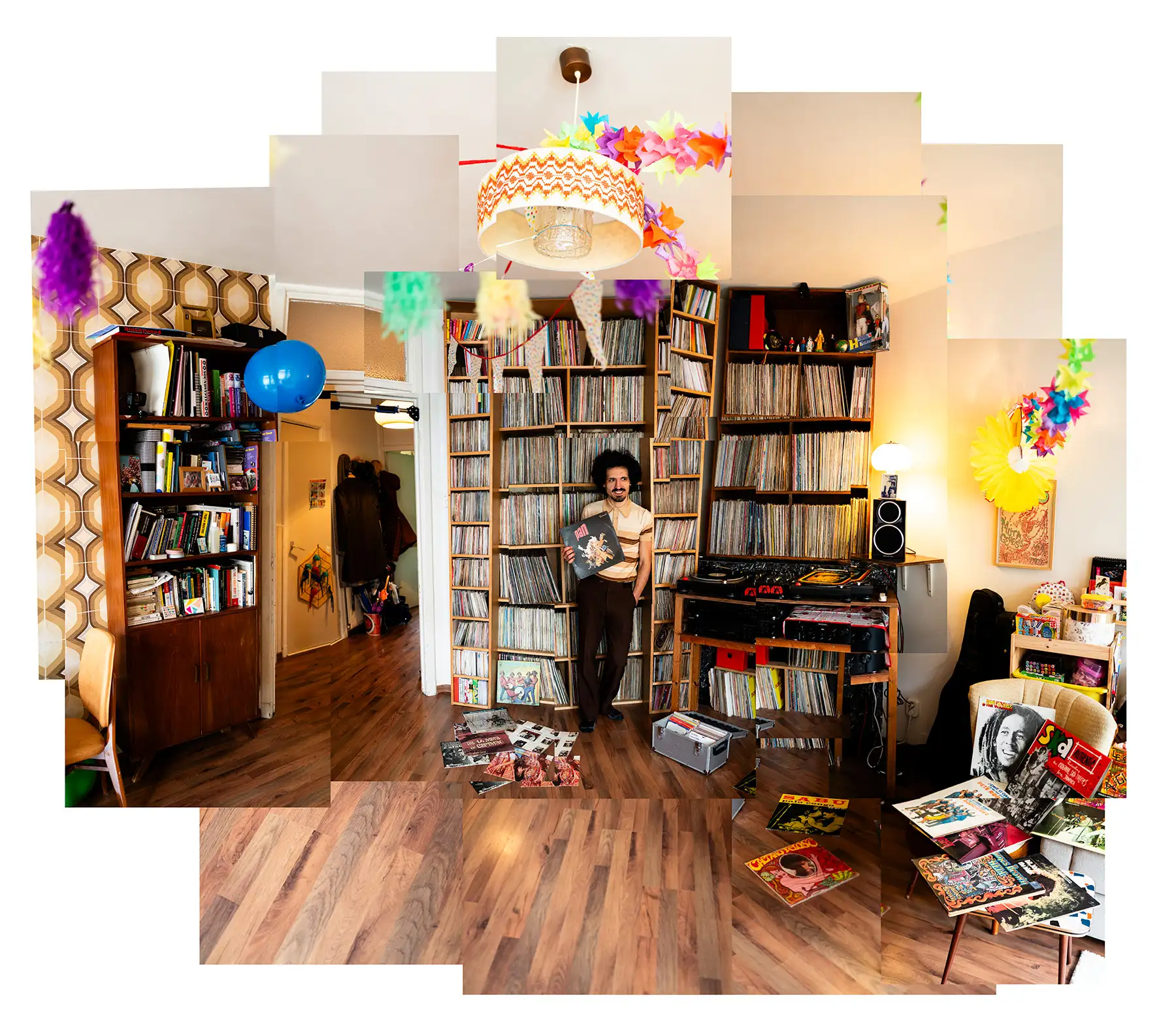
Alex’s bio says it all. He’s the “Hardest working man in Tropical Music.” He’s worked on a handful of projects, including Fumaça Preta, Mentallogenic, and Maracas, tambourines and other hellish things O.S.T. (what a title!) Alex releases music rather frequently, most recently, “Curry Crispy.”
Further Adventures in Record Collecting
Dust & Grooves Vol. 2
Alex Figueira and 150 other collectors are featured in the book Dust & Grooves Vol 2: Further Adventures in Record Collecting.
Become a member or make a donation
Support Dust & Grooves
Dear Dust & Groovers,
For over a decade, we’ve been dedicated to bringing you the stories, collections, and passion of vinyl record collectors from around the world. We’ve built a community that celebrates the art of record collecting and the love of music. We rely on the support of our readers and fellow music lovers like YOU!
If you enjoy our content and believe in our mission, please consider becoming a paid member or make a one time donation. Your support helps us continue to share these stories and preserve the culture we all cherish.
Thank you for being part of this incredible journey.
Groove on,
Eilon Paz and the Dust & Grooves team


